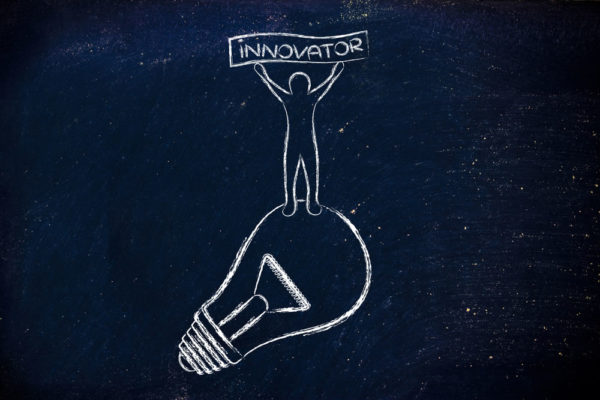One of the most important aspects of reaching students in a meaningful way is the ability to keep them engaged and engrossed in their work. As digital natives, today’s students desire participatory, not passive, learning experiences. Innovation-based courses are a fun, challenging and effective way to provide personalized, cross-curricular pathways.
Our district has implemented the Inventionland Innovation Course with great success. The course is based on Inventionland’s 9-step inventing method and provides students with a real-life “Shark Tank” experience where they create a product from the initial idea, to a concept model, to a product pitch.
These kinds of project-based courses with roots in STEM, STEAM, making, and constructivism are growing ever more popular and provide real-world application of multiple core courses. As an educator, you have to love that. So do the students!
Here are the 9 reasons why today’s students love innovation-based courses:
1. They own it. Put students in the driver’s seat and watch them go! These courses are not geared toward memorizing facts, but rather letting students take the wheel. When they have a vested interest in the course, they become the designers, developers, and owners of their learning journey.
2. They acquire employability skills. These are the skills and behaviors necessary to be successful in any career. Employers want people who can use creativity, critical thinking and collaboration to solve problems. They seek candidates with exceptional time management, planning and communication skills; all of these soft skills are embedded in the 9-step inventing process.
3. Their eyes are opened to fresh ideas. Who says daydreaming at school is a bad thing? Brainstorming serves as a catalyst for these courses. Innovation is thought provoking and forces students to think outside the box. The more their minds roam, the closer they come to the curriculum!
(Next page: Great characteristics of innovation-based courses 4-9)
4. They develop self-awareness and confidence. Sometimes, students need to break out of their shells, as they oftentimes discover both hidden talents and abilities. When given the opportunity to customize their classroom experiences according to personal interests and styles of learning, students become empowered to take learning in their own direction.
5. They love getting their hands dirty. No idle hands here. Given the choice between sitting at a desk or being up and moving, the choice is pretty easy for most students. Whether it’s cardboard and glue guns, or circuits and robotics, students are all in!
6. It allows for real-world application of computer and technical skills. So, your school just built a makerspace, installed a media studio or purchased 3D printers. Now what? Courses based on innovation provide a practical use of cutting-edge technology so that students can be on the frontlines of tomorrow’s careers.
7. They see things from another perspective. 21st Century learners want instant gratification. These courses embrace challenges and encourage students to capitalize on shortcomings. Failure is an essential and constructive part of learning. It takes perseverance and grit to have a substantial idea, create a prototype, and work it through the design process.
8. They apply other subjects without even knowing it. Let’s face it; sometimes we need to “trick” students into learning. And that’s not a bad thing. Doing things in a new way is the essence of innovation.
9. It all adds up to increased engagement. It’s a win-win situation for students and teachers. Attendance and achievement increase, and disengagement and behavioral incidents decrease. What’s not to love about innovation-based courses?
The Inventionland Innovation Course is web-based and available nationwide to students in grades 6-16. To explore a demo of the course visit www.inventionlandinstitute.com. To learn more about our district’s transformational journey, follow our STEAM blog here.
- 4 ways to encourage play in education - April 25, 2024
- CoSN IT Leader Spotlight: Lisa Higgins - April 25, 2024
- It’s time to pay student teachers - April 25, 2024

